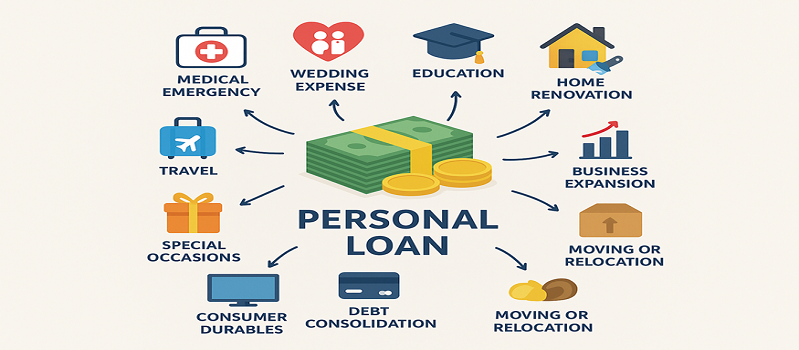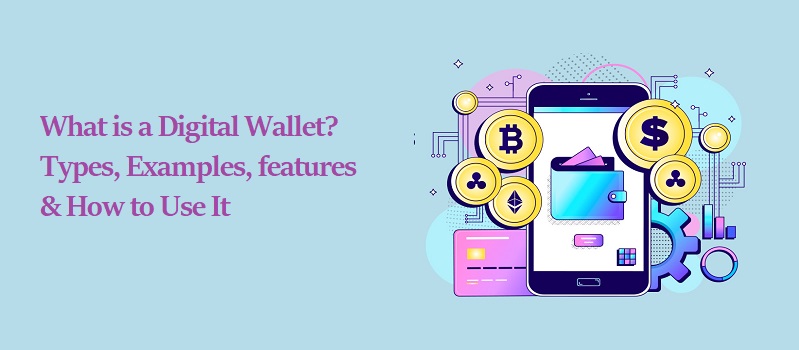You can be caught unawares by financial setbacks at any point in your life. More than 25% of people live from paycheque to paycheque. Financial management is not a conch. Many people find it difficult to keep a tight rein on spending despite using budgeting apps. According to a survey, 30% of people reported that they are always in the red at the end of the month due to convenient credit card shopping. However, 45% held unemployment responsible for their financial predicament, which became worse over time because of guaranteed loans on benefits.
Loans have been designed to help people tide over when cash is short, but people forget the true reason for using these loans. They are aimed at addressing emergency expenses, not regular and recurring expenses. Since loans are paid back along with interest, they increase the burden on your pocket. Small emergency loans are generally required to be discharged in one swoop the day after your payday, and you find yourself cash-stripped. Now, less money is left with you because you have to pay interest on top of the borrowing amount. This spirals up the debt amount over time, and you eventually find yourself under the burden of the debt.
Effective strategies to white down financial stress
Here are the strategies to reduce financial stress:
1. Start cutting costs
Whether you are suffering from financial problems due to the loss of a job or other reasons, the first thing you should do is to cut down on costs. Do not wait for things to become normal automatically. At the same time, do not overthink that things will become sooner. The best way to cushion the blow of financial problems is to cut down on costs.
Evaluate your budget and look at expenses that are not essential. Financial experts suggest that you should switch to a bare-bone budget. This budget includes only essential expenses. Unless your financial situation improves, you are supposed to adhere to essential expenses. No single penny should be spent on discretionary expenses.
For instance, say no to dine out and night out. By slashing these expenses, you will be able to stretch your money a bit longer. There is always a scope for reducing essential expenses, too. For instance, you should avoid buying groceries in bulk. At the time, every penny counts. As you have a shortage of money, you should not stockpile. Make sure that you buy groceries from local thrift stores. Online grocery shopping would be cheaper than in-store shopping.
Despite fine-tuning your budget, you may still need to take out doorstep loans for people on benefits. If that is the case, you should consider using these loans only when you are completely certain that you can repay them. However, it is always suggested that you consider using these loans only for one-off essentials.
2. Take stock of debt
Your financial problems can make it challenging for you to tackle your debts. For instance, if you lose your job, you will suddenly feel a drastic shortage of cash. As a result, you might struggle to keep up with payments. No matter how poor your finances are, you cannot escape debt payments. Missing a payment will lower your credit points and also mushroom the size of your debt.
Therefore, it is enjoined that you quickly consult a financial advisor. They will help you take stock of your whole financial condition, such as how many assets and investments you have and how much debt you have. Your financial advisor would help you come up with a repayment strategy. They might help release equity or sell some of your non-functional assets so you can use that money with your lenders.
If you need some time to come up with a plan, make sure that you inform your lender in advance about your payment struggles. This will prevent your credit score from lowing down and late payment charges.
3. Create a financial plan
A financial plan is extremely important when your budget is tight. It will clearly tell you where you are and where you have to be. Just because you are in a tight spot, it does not mean that you will stop making efforts to achieve your financial goals. All you need to do is to prioritise your goals. Now, instead of focusing on all goals simultaneously, you will be trying to achieve a few of them.
A financial plan divides your goals into three categories: short-term, medium-term, and long-term. Savings and debt payments are also part of those goals. At this time, you should focus on achieving short-term goals. For instance:
- Stashing away £1,000 for a rainy day
- Discharging your credit card debt and other small loans
You can divert your attention from medium and long-term goals when you are struggling with your finances due to unemployment, but if your financial condition has been compromised for a very long period of time, you should try to focus on all goals.
For instance, you cannot wait to start contributing to your retirement fund until you start earning a good amount of income. You should write all your goals and create a plan to achieve them. Be consistent with your efforts because they might take a long time to come to fruition.
4. Increase your income sources
If you are struggling with your expenses due to low income, you should start looking for ways to improve your income. Ask your employer if they could provide you with a pay hike. However, you will have to draw their attention to your accomplishments. Despite your hard work, your employer could deny raising your salary. In this situation, you should think of considering other alternatives.
Update your resume, hone your skills, and set yourself apart to increase your chances of being shortlisted. You will likely find a better job with a higher pay scale if you make recruiters believe that you are the right candidate for the company.
If this is not a suitable option, you should find a side gig. Having a side gig with help you have extra cash coming in. You can use your extra income to meet your debt obligations, grow your emergency cushion, and meet other essential expenses.
5. Create a budget
The next step is to create a budget. A golden rule of thumb says that budgeting is the key to being in control of your finances. There are various types of budgeting apps. You should also use an app that suits your financial goals. Budgeting is not depriving yourself of living your own lifestyle. It rather means keeping tight control of your overspending. Budgeting leads to financial freedom by restricting overspending.
You might find it challenging to adhere to budgeting in the beginning, but soon, you will take it in your stride. While budgeting apps handle your accounts automatically, you will still need to record some transactions manually and keep track of your expenses as soon as possible.
The final word
When your financial situation is not good, it can be challenging to meet your expenses. But there are certain ways to prevent further losing control of your finances. While budgeting is important, you should also increase your income, make strategies to clear debts and cut back on your expenses.

Emma Anderson is a financial advisor at Quickloanslender who always believes in researching hard to know her clients’ financial problems. She takes the time to understand their financial wants and needs to write the blogs on them as the solutions. In her long 14 years of experience, she has written plenty of blogs on the financial and business sectors of the UK.
Emma Anderson has been recognised for her work in financial planning and her blogs are regularly published in the website of Quickloanslender. As far as her educational qualification is concerned, she has done Masters in Accounting and Finance, and done PG Diploma in Creative Writing.






